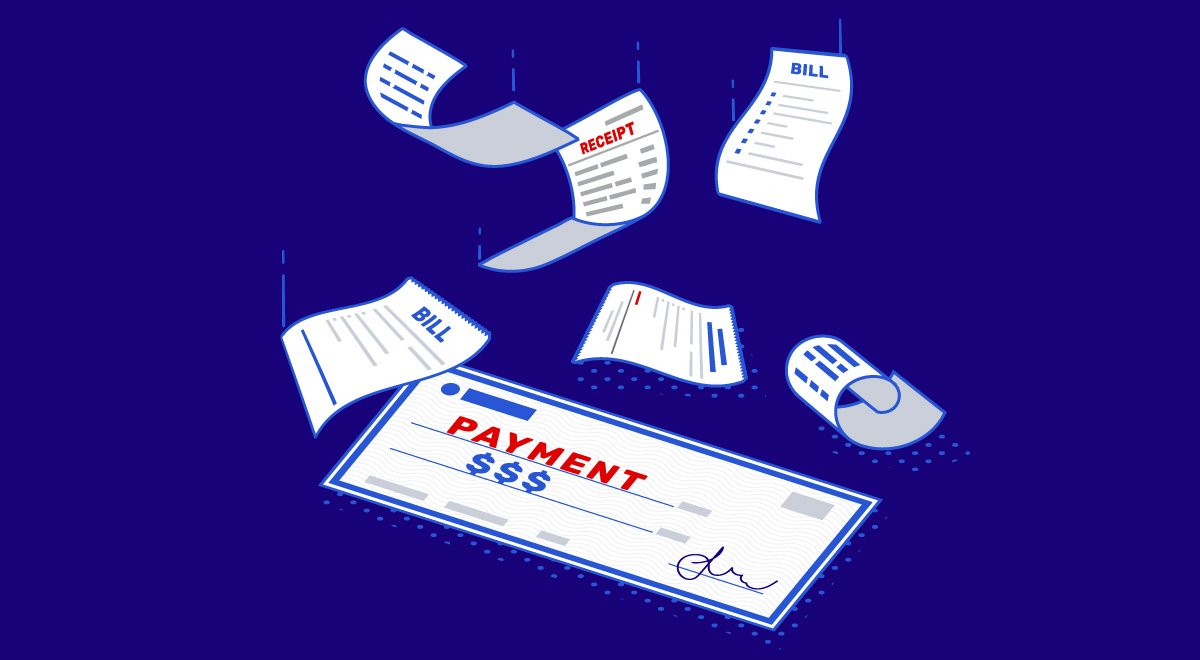What will you do if you need to pay your bills but you realize you do not have the funds for it? Will you panic?
Some people might. It is normal for you to feel a certain level of panic when you realize that you cannot afford to pay one of your bills. Your monthly bills represent your lifestyle. If you cannot afford to pay them, it is an indication that something is wrong. It is either your income is too small to finance the lifestyle that you have chosen. It can also be an indication of poor financial management. Sometimes, your inability to pay off your financial obligations is a sign that you need to change something about how you live your life. Sometimes, this change is nothing significant. Sometimes, it can be a painful process.
According to the data from NerdWallet.com, 1 out of 4 adults in the country do not always pay their bills on time. This is according to the data gathered by the NFCC (National Foundation for Credit Counseling) in the 2015 Financial Literacy Survey. We all know that you need to make a habit of paying your bills on time because that can affect your credit history. When you have a bad history, this can affect your credit score. If you have a low credit score, that can influence any credit account or financial transaction that you want to get in the future.
Obviously, if you cannot pay your bills, it deserves a moment of your time and attention. You need to find out how to solve this problem because ignoring it will only make things worse.
4 tips in case you cannot afford to pay the bills at home
Let us start by doing something about the bills that you cannot pay. The hard truth is, you need to pay these. If you find yourself in a position wherein you cannot afford to pay your bills, that means you have to make certain changes in your life. Here are 4 tips that you can follow.
Lower your lifestyle. If you cannot pay your financial obligations, that means you need to lower your spending. That means rethinking your lifestyle. According to an article published on Investopedia.com, if your bills are spiraling out of control, that is an indication that you are spending beyond your means. You need to stop and change your lifestyle choices because your income can no longer afford. It is either some of your expenses are more costly or you added a few expenses unknowingly. There are also times when it is your income that decreased. Regardless of the reason, it is evident that your lifestyle is no longer feasible. You have to stop spending beyond your income because that can quickly lead you into debt.
Identify your priorities. In case you have to lower your lifestyle, it helps to do it by starting with your priorities. You need to know what is important to you so the limited financial resources can focus on that. If it is more important for you to have enough expenses for entertainment, then you may want to sacrifice by living in a smaller home. If you cannot cook and you know that you cannot save by cooking your meals at home, then compensate by giving up a different expense. It is just a matter of giving up what is not necessary and concentrating on what will really make you happy. Sometimes, you may be surprised to find out that your priorities are not really that expensive after all.
Increase your income. In case downsizing is not possible, you may want to consider increasing your income. If that means you need to take on a new job, then do it. There are many side jobs out there that you can qualify for. Some of them can even be found online. If you are a one-income household, you may want to talk to your spouse or partner so they can start earning one more. Even if they are taking care of the kids, there are part-time jobs that they can do while the kids are asleep or in school. Obviously, the current income is no longer sufficient. If you do not want to change your lifestyle, then increasing your income is a must so you can pay your bills.
Come up with a long-term solution. It is also important for you to consider the reasons why you are having trouble with your payments. There may be money resolutions that you need to implement as soon as possible to keep this problem from escalating. It can be a debt relief program, a new financial management technique or better spending habits. The important thing is to identify what the problem is and come up with a solution to keep your budget from falling short of your bills payments.
These should help minimize the chances that you will unable to pay your bills again.
Tips to make bills payment easier
Sometimes, your inability to pay off your financial obligations is not really because you lack the funds. There are instances when you only have to develop the right financial habits that will allow you to manage your bills more efficiently so you do not miss out on payments.
Here are a couple of suggestions to help you make bills payments easier.
- Create a budget. Start by creating a budget. This will help you monitor all the bills that you have to pay off and the income that will fund it. You can rank all your expenses so the priorities are on top and the least important are at the bottom. That way, you can easily find the expenses that you can stop when your income falls short.
- Organize your files. You should also learn how to organize your files. Sometimes, people miss out on payments because they misplaced a bill. When they suddenly find it, they realize that the money meant for that bill was spent on something else. Organizing your life can help you make the right financial decisions so do not allow clutter to keep you from acting on important financial activities.
- Automate your bills. Another way to keep yourself from missing out on your bills is to automate them. You only have to remember the total amount that you need to fund, deposit them in one account and let the bank do the auto payments for you. That will keep you from being placed in a position where you cannot afford to pay your bills.
- Pay bills online. Some people find that paying their bills online is very convenient and easy to do. You do not have to worry about long lines or banks being closed. According to the data from the AmericanBanker.com, 4 out of 5 households in the US who have Internet access at home use it to bank online. It also revealed that online bill payments are increasing. This paperless option is not only convenient, it is also good for the environment. So try this option and you may find it easier to stick to your bill payments.
- Change your due dates. In case your due dates fall differently in the calendar, you have the option to change that. Simply call the bank, creditor, lender or service provider and ask them to change your due date for you. This will make managing payment easier.
- Set up reminders. This can be a big calendar in a visible place at home that shows all your due dates. Or it can be an email reminder. This can even be a simple post-it in your notebook. Make sure you have all these reminders set up days before your due dates so you can prepare the funds that will be used to pay your bills.
Common questions about paying your bills
Question: How to pay your bills with no cash?
Answer: You can pay your bills online so you do not have to handle cash. Just make sure that you will send your payments to the official website of the company that you want to send the payments to.
Question: How can I pay my bills on time?
Answer: It helps to set up reminders that will alert you of an upcoming payment. Ideally, you want to set it up days before the due date. That way, if you do not have funds, you still have a few days to come up with the money to pay your bills.
Question: How can I pay my bills online?
Answer: You just have to set up an online bank account. Most of the time, banks allow you to open an online account and link your own account to it. Then, enroll your bills in the online payments. You can access this account each month and transfer the funds for a more efficient and convenient way of paying bills.
Question: Why should I pay my bills?
Answer: You need to pay your bills because that is your obligation. If you borrowed money or you used a product or service, it is your responsibility to pay it through your bills. Of course, you should not always pay blindly. Always scrutinize your bills to make sure that you are paying for the right things.
Question: What happens if I do not pay my bills?
Answer: Your credit score will suffer. In a FICO score model, late payments affect 35% of your credit score. It will also increase your debt because late payments are usually penalized.







